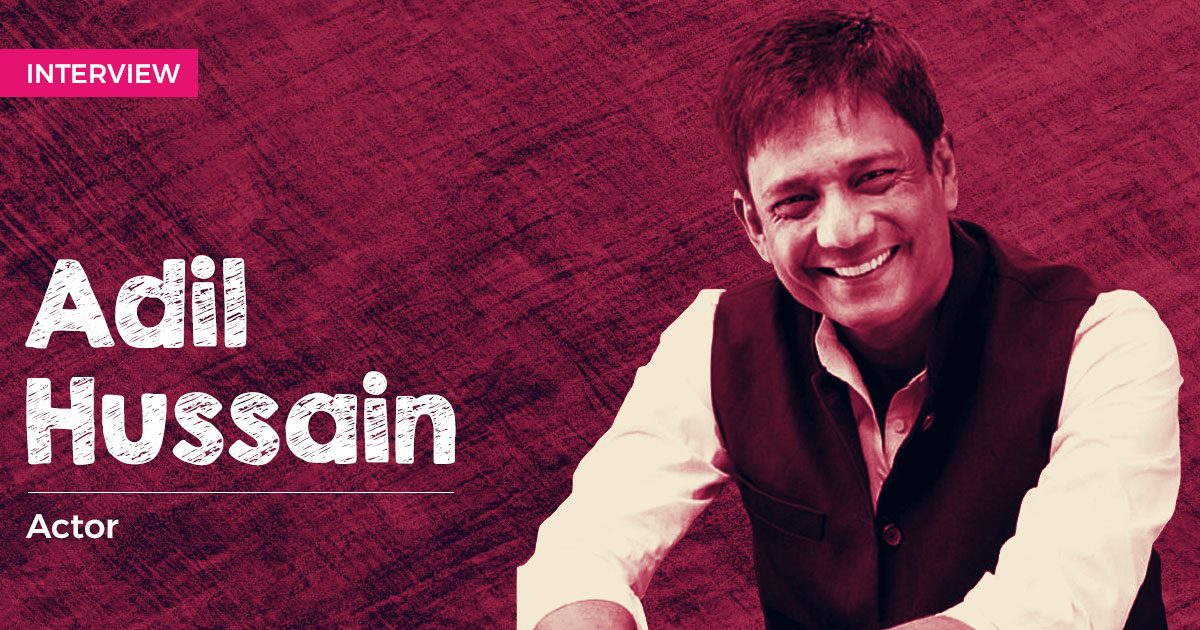Renowned actor Adil Hussain, known for his versatile performances across national and international films, recently spoke to Navbharat Times in an exclusive interview. Hussain, who has portrayed a wide range of characters throughout his career, shared his thoughts on the risks of AI in filmmaking, the challenges of method acting, and the industry’s tendency to typecast him in authoritative roles.
Breaking the Typecast: Adil Hussain’s Perspective
Adil Hussain has been widely recognized for his roles as RAW agents, CBI officers, and other authoritative figures in mainstream cinema. His recent role as a senior diplomat in the film Uljh sparked a conversation about whether the industry is typecasting him. Hussain, however, sees it differently.
“I understand the concern, but I consider myself fortunate,” Hussain remarked. “I get to play a variety of roles. In addition to mainstream films, where I often play authoritative figures, I also do films where I’m the lead, like in Gautam Ghosh’s Raahgir or Mukti Bhawan. These films allow me to explore different facets of my acting skills.”
Hussain emphasized that while he is often approached for roles requiring a strong sense of authority and command, he carefully chooses the ones that appeal to him. “In Mukti Bhawan, I played a lower-middle-class clerk, and in Z Plus, I portrayed a puncture repairer. I’m fortunate to have a balance between such diverse roles,” he added.
Choosing Roles with Impact, Not Screen Time
For Hussain, the decision to accept a role goes beyond the amount of screen time. He values the strength of the story and the significance of his character within it. “The story’s intention and how pivotal my character is to it are my main criteria,” he explained. “Even if a role offers limited screen time, I focus on making the most of it.”
He cited his role in the Hindi film Ishqiya as an example. Despite having minimal screen presence, Hussain’s performance left a lasting impression. “It’s not about the duration but the impact. I always tell my students to focus on the quality of their work, not the quantity of time they spend on screen,” he advised.
Method Acting: The Emotional Toll
As a National School of Drama (NSD) graduate, Hussain is well-versed in the intricacies of method acting. The technique has been a topic of debate, especially after actor Prashant Narayanan criticized Ranveer Singh for getting too deeply into his character during the filming of Padmaavat.
Hussain acknowledged that method acting can indeed have a profound effect on an actor’s emotional state. “Yes, certain characters can leave a deep impression,” he said. “I’ve experienced it myself, especially in plays where the preparation time is longer. The key is to remain emotionally alert and not let the character consume you.”
Hussain shared his approach, explaining that he has modified his preparation techniques over the years. “For the last 10 years, I’ve stopped preparing in the conventional method acting way. My goal is to immerse myself in the character without letting it negatively impact me afterwards,” he revealed.
The AI Debate: Protecting the Human Connection
The conversation also touched on the rising concerns about AI in the film industry. Director Sandeep Reddy Vanga recently discussed the possibility of replacing actors with AI-generated characters, a concept that has sparked protests in Hollywood.
Hussain, a member of the Screen Actors Guild – American Federation of Television and Radio Artists (SAG-AFTRA), expressed his concerns about the implications of AI in filmmaking. “If producers opt to use AI instead of hiring real actors to save costs, they risk breaking the human connection that is crucial for emotional health,” he warned.
He further emphasized the ethical considerations, stating that if AI is used to create a character resembling a specific actor, full financial compensation should be provided, and the actor’s permission must be obtained. “Without the actor’s consent, this should not even be an option,” Hussain asserted.
A Reflection on Working with Janhvi Kapoor
In Uljh, Hussain plays the father of Janhvi Kapoor’s character, a role that drew comparisons to his portrayal of the late Sridevi’s husband in English Vinglish. When asked about the similarities between Sridevi and Janhvi, Hussain highlighted their shared dedication to their craft.
“I noticed the same level of dedication, honesty, and focus in both of them,” Hussain observed. “Janhvi has inherited her mother’s zeal to learn and her commitment to following the director’s vision. It was a pleasure working with her.”
Adil Hussain’s insights offer a glimpse into the mind of an actor who values authenticity, quality, and the human connection in his work. As the film industry grapples with new challenges like AI and the emotional toll of method acting, Hussain’s perspective serves as a reminder of the importance of preserving the artistry and humanity in cinema.


